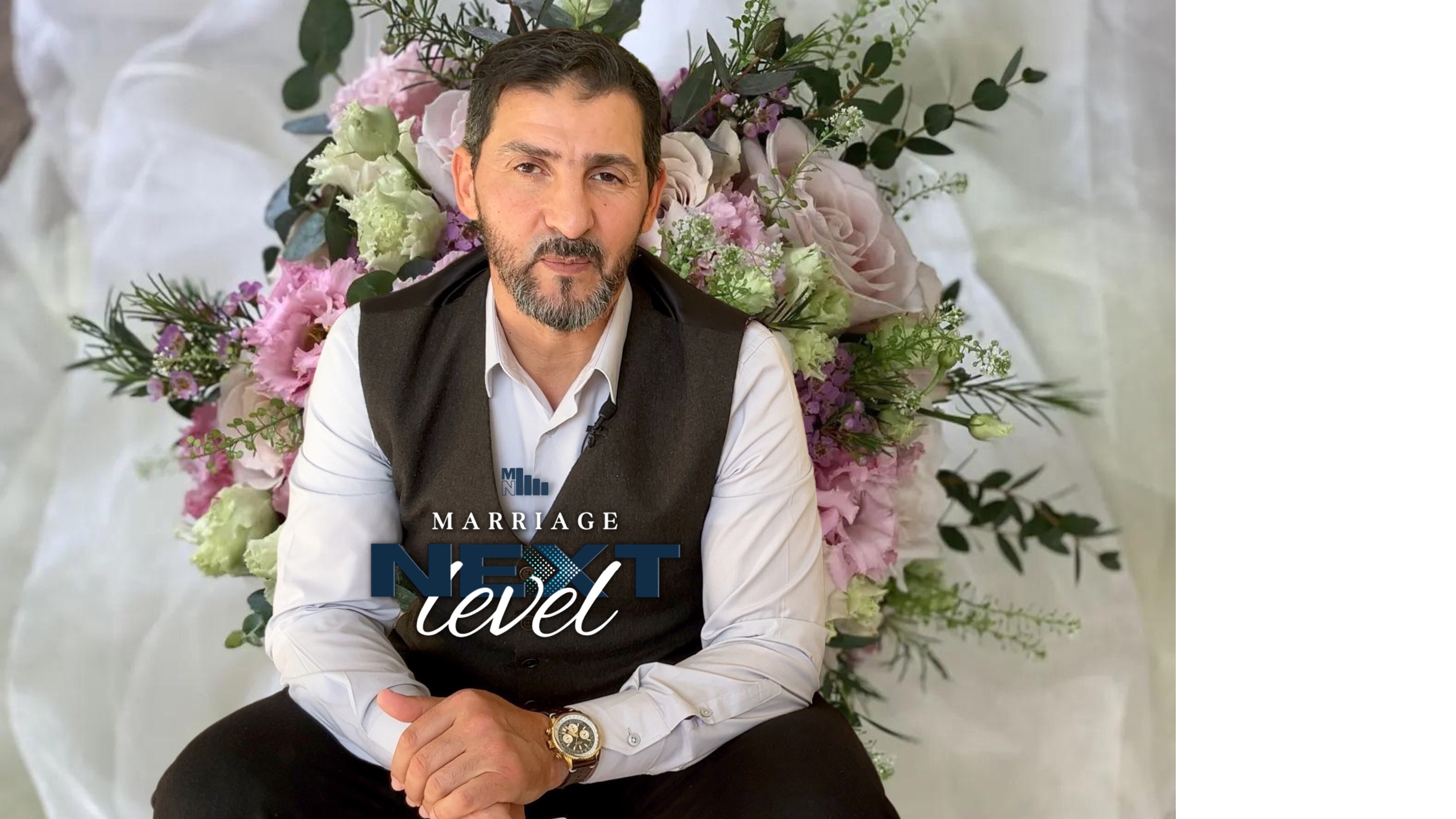The Engagement: A Walk Towards Happiness or a Descent into "Hell"?
- H. Boulaghrasse

- Aug 14, 2024
- 4 min read
Updated: Aug 22, 2024
Asking the right questions upfront can impact the quality of your marriage and save you from so much pain!

It’s a big day for both of them— first the engagement and then the all-important tying of the knot. Delicious food, beautiful songs, and a happy atmosphere—you name it!
The couple is joyful and excited as they watch the wedding proceed smoothly. They are fully aware that this big day marks the beginning of a journey, but they have no certainty about where this journey will take them.
Will it be a walk towards the heaven of happiness and tranquillity or a descent into the hell of misery and suffering?
So many marriages end in conflict, harsh treatment, and even domestic violence, not to mention divorce.
In my point of view, in many cases, success or failure in marriage has nothing to do with luck. Rather, it has a lot to do with deep preparation, planning, and wisdom in choosing a spouse.
One of the main elements many people tend to forget in this regard is answering some major questions about themselves and their potential spouse beforehand.
But before I delve into that, why is choosing the right spouse so crucial?
Let me emphasise five reasons:
Foundation of Happiness: A well-chosen spouse can lead to a life filled with love, care, and mutual respect. On the contrary, making the wrong choice can result in perpetual conflicts and emotional turmoil.
Compatibility: Compatibility goes beyond shared interests; it includes values, long-term goals, and life plans. When partners are not on the same page, it can lead to significant misunderstandings and dissatisfaction.
Stable Home Environment: The right partner helps create a stable home environment, which is crucial for raising children. A nurturing environment fosters emotional and psychological growth in children, ensuring a healthier family dynamic.
Personal Growth: A good match encourages personal growth and helps you become the best version of yourself. They support your dreams, stand by you during tough times, and celebrate your successes.
Conflict Resolution: Marriages are bound to face challenges. The right spouse will have the maturity and willingness to resolve conflicts amicably, instead of escalating them into full-blown fights or, worse, abuse.
Now, let’s get into the skill of asking the right questions.
This is a massive tool every person should have and act upon before they get married to their potential spouse. Asking not only the other person but themselves first. This can have a huge impact on the quality of the marriage.
Questions to Reflect On:
Before making the ultimate decision, consider answering the following questions about yourself and your potential spouse:
Questions for Self-Reflection:
What are my core values and beliefs? Example: Do I value religion, Islamic ethics, honesty, loyalty, and transparency above all? Do I strongly follow a school of thought and want my spouse to respect that? Do I have a vision for the upbringing of potential children?
What is my lifestyle right now and am I content with it? if not, what lifestyle do I want to shift to? Example: Do I dream about wealth, material possessions and having the latest 'on trend' items and am willing to work hard to achieve that, or am I more of a laid-back person who appreciates the simple things in life, preferring experiences over products?
Do I have a disorder that can impact my behaviour and obligations towards the family? Example: Am I dealing with mental health issues that could affect family dynamics? Do I have chronic illnesses that require special care?
How do I handle conflicts and stress? Example: Do I tend to shut down or confront issues head-on? How do I react under pressure? Am I an angry person struggling to manage my anger, often leading to conflicts and fights?
What past experiences may influence my future behaviour in a marriage? Example: Have past relationships taught me specific lessons? Did my upbringing shape my views on marriage?
Questions About the Potential Spouse:
Do they share similar values and beliefs? Example: Are they committed to the same religious practices? Do they have similar views on Islamic ethics, honesty, loyalty, and integrity? Do they respect your right to follow your school of thought?
What is their lifestyle right now? Is it aligned with yours and the one you are working to adopt?
Are they supportive of your personal and professional goals? Example: Will they support your ambition to pursue a demanding Halal career? Are they enthusiastic about your hobbies and interests?
Do they have a disorder that can impact their behaviour and obligations towards the family? Example: Are they dealing with mental health issues that could affect family dynamics? Do they have chronic illnesses that require special care?
How do they manage conflicts and stressful situations? Example: Do they prefer to discuss issues calmly or tend to avoid confrontation? Are they angry and don't manage their anger well?
What kind of relationship do they have with their family? Example: Are they close to their parents and siblings? Do they have unresolved family conflicts that could impact your relationship?
Are there any cultural or familial expectations that need to be discussed? Example: Are there specific traditions they want to uphold? Do their family’s expectations align with your own?
Conclusion:
In conclusion, choosing the right spouse is one of the most important decisions you'll ever make, and it requires careful consideration and deep reflection. Through the excitement of engagements and wedding ceremonies, it’s crucial to remember that the real journey begins afterwards.
By asking the right questions—both to yourself and about your potential spouse—you lay the foundation for a marriage built on mutual respect, compatibility, and shared values. This not only creates a happier and more fulfilling life for both partners but also ensures a stable and nurturing environment for your future family. Remember, the success of a marriage is not solely dependent on luck but on the wisdom and foresight you exercise in this critical choice.
Being honest with yourself and your potential spouse about your core values, long-term goals, conflict resolution styles, and family expectations can guide you towards a relationship that thrives. Let your marriage be a walk towards heaven, filled with love, peace, and mutual growth.
As you embark on this significant journey, may Allah guide you and bless you with a spouse who will be a source of tranquillity and support, helping you both navigate the path to a successful marriage, insha'Allah.
Now, here is a question for you; what other considerations do you think are important when selecting a life partner?
Hassan Boulaghrasse

To answer your final question of what other considerations we think are important when choosing the right person - it is tricky to come up with more because I think you have already provided a detailed set of points to consider. However, I will reiterate that it is important to try and know and understand yourself and accept where your short-comings are for example. This is, of course, much easier said than done. I think we should also remember that people change over time and we are not often the same person that we were when we were 20, 30, 40 or perhaps even this time last year! As a result, a continuous cycle of checking in with yourself an…
😎